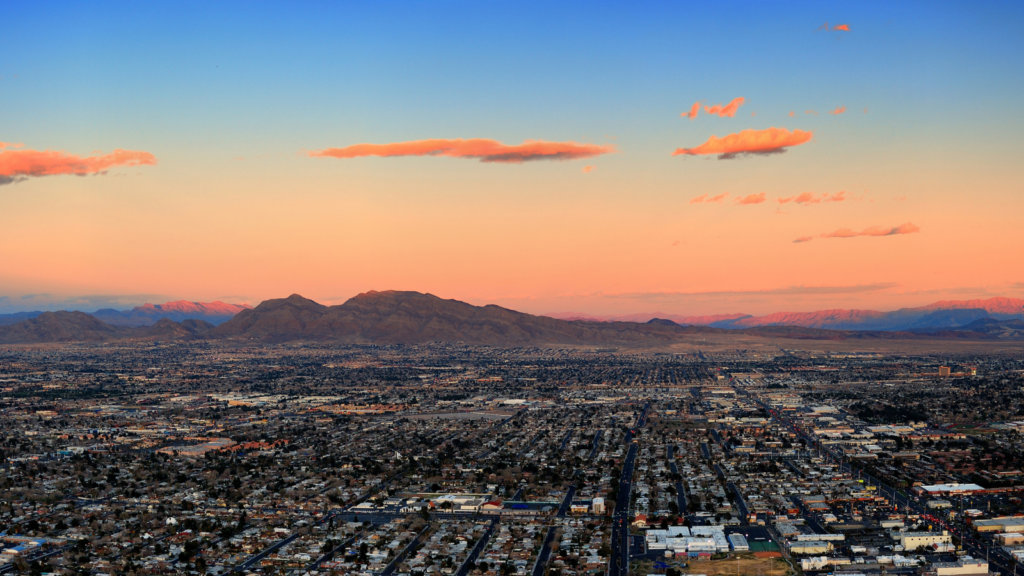
Growing up in Las Vegas, I have grown close to Nevada’s outdoor wonders and the resilient community of organizers, educators, and story-tellers in the climate movement. I was proudly raised by a Chihuahuan and Poblano family who value conservation and the beautiful outdoors. My appreciation for my culture, community, and the environment motivates me to center environmental justice in all of the work I do.
Latino Conservation Week offers a moment to celebrate my community’s connection to the outdoors and natural spaces, and recognizes our contributions to the conservation movement.
I look to the many Latino conservation leaders who are forging a path forward for our community in connection with our environment. Honduran leader Bertha Zuñiga and Oaxacan leader Karen Ramos, are just a few of many that have paved the way for other Latinas to be vocal about environmental injustices and take up space outside.
Just as important, my elders are instrumental in carrying out a legacy of conservation and sustainability for my Mexican immigrant family. Growing up, I helped my abuelita tend to her urban vegetable garden, teaching me about sustainable agriculture and protecting plant life. My favorite was helping her hang clothes to dry on our homemade clothesline. Not only was this resourceful, but it helped reduce our home’s energy consumption. Irreplaceable moments like conservation lessons with my mother, camping trips with my sisters, and mountain bike rides through the magical Mojave desert with my father also ignited my deeply rooted connection to our public lands.
My family’s practices taught me to connect with the outdoors and to appreciate and conserve what we have. It’s part of why I enjoy my work at the Nevada Conservation League, where we can support local efforts to ensure our public lands are conserved, protected, and accessible for everyone.
Reflecting on my own family’s contribution to our environment is important, and so is celebrating Latino Conservation Week as a recommitment to addressing major environmental issues our communities face.
Climate effects disproportionately impact Nevada’s Latino Community. Moving around different parts of Southern Nevada during my childhood demonstrated these significant environmental differences.
Growing up in Whitney, Paradise, and east Las Vegas, I was used to fewer green spaces and later came to know these areas were heat islands, which are “urbanized areas that experience higher temperatures than outlying areas.” Buildings, roads, or other infrastructure contribute to the heat by absorbing and re-emitting the sun’s heat.
Studies have found that people of color are more exposed to heat islands. This can put these communities at a higher health risk and leave them to face higher energy bills. Latinos are more likely to be affected by extreme temperatures where they work, making them 43 percent more likely than others to lose work hours and pay because of intense heat.

Darker red shaded areas reflect geographic neighborhoods that have higher heat exposure. These areas include the Bracken, Paradise, Whitney, and Winchester neighborhoods, as well as parts of East Las Vegas, North Las Vegas, West Las Vegas, and north Henderson.
Poor air quality also leaves Latinos at risk for devastating health impacts. Latino children are three times more likely to live in a county where hazardous air pollution exceeds federal air quality standards. This type of chronic exposure to air pollution can have serious impacts on children’s health and exacerbate respiratory conditions, including asthma and bronchitis.
Nevada’s most populated counties already receive failing grades from the American Lung Association. In a recent story from the Nevada Current on efforts to address air quality among Latino residents, “residents in East Las Vegas’s Ward 3 are exposed to more vehicle emissions despite driving personal vehicles less and using more public transportation.” Latinos make up a large share of East Las Vegas communities.
While our community faces barriers, Nevada has taken important steps forward to address environmental justice. Earlier this year, Governor Steve Sisolak established a statewide environmental justice team to implement the federal Justice 40 Initiative and to ensure equity and justice are central to climate planning for our state.
During the 2021 legislative session, the Nevada Conservation League worked alongside community groups to help reduce smog pollution by closing a loophole that allows “Classic Cars” to avoid regular smog checks and make cleaner alternatives available for historically marginalized communities.
I am proud to celebrate Latino Conservation Week knowing we are seeing progress in our communities. All of these efforts would not have been made possible without community voices and action. It is critical that Latino communities and allies become involved in the legislative and political process to voice our needs. Join the Nevada Conservation League to help ensure our communities have access to a healthy environment.
About Latino Conservation Week
Latino Conservation Week was launched in 2014 by the Hispanic Access Foundation and is celebrated July 16th through the 24th all across the United States. This week of celebration was established to connect the Latino community to the outdoors and encourage collective environmental action.
